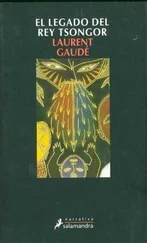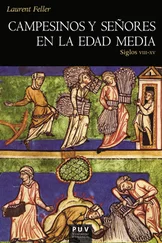Heydrich arrives in Prague the day that his appointment is announced to the Czech people. His airplane, a three-engined Junkers 52, lands at Ruzyne Airport around noon.
He goes to the Esplanade Hotel, one of the most beautiful in town, but he obviously doesn’t spend long there, because that same evening Himmler is able to read his colleague’s report, sent by teleprinter:
At 15:10, ex–prime minister Eliáš was arrested, as arranged.
At 18:00, also as arranged, the arrest of ex-minister Havelka took place.
At 19:00, Czech radio announced my appointment by the Führer.
Eliáš and Havelka are being interrogated now. For diplomatic reasons, I must convene a special assembly in order to bring Eliáš to justice before a popular tribunal.
Eliáš and Havelka are the two most important members of the Czech government that is collaborating with the Germans under Hácha’s presidency. They have nonetheless maintained regular contact with Beneš in London—a fact known to Heydrich’s spies. This is why they are immediately condemned to death. Although, after thinking about it, Heydrich decides not to execute the sentence straightaway. It is, of course, only a temporary reprieve.
The next morning, at eleven o’clock, Heydrich’s investiture takes place in Hradčany Castle, or Hradchine, as the Germans call it. The vile Karl Hermann Frank—the Sudeten bookseller turned SS general and secretary of state—greets Heydrich amid great pomp in the castle courtyard. An orchestra, summoned for the occasion, plays the Nazi hymn “Horst Wessel Lied.” Then Heydrich inspects the troops while a second banner is hoisted next to the swastika that flies above the castle and the town: a black flag embossed with two runic S s, signaling that another rung has been climbed on the ladder of terror. From now on, Bohemia and Moravia are, almost officially, the first SS state.
That same day, two great leaders of the Czech Resistance are executed: General Josef Bilý and Major General Hugo Vojta. They were found guilty of fomenting an armed uprising. Before his death, General Bilý shouts: “Long live the Czechoslovak Republic! Now shoot me, you dogs!” These two men—yes, two more—do not really have a role to play in my story. But I felt it would be disrespectful not to even mention their names.
Along with Bilý and Vojta, nineteen former Czech army officers are killed, four of them generals. The crackdown begins in the days that follow. A state of emergency is declared throughout the country. All gatherings, indoors or out, are forbidden in accordance with martial law. The courts now have only two options, whatever the charges: acquittal or death. Czechs are sentenced to death for distributing pamphlets, selling goods on the black market, or simply listening to foreign radio stations. Each new law is announced by a red poster in two languages, and soon the town’s walls are filled with them. The Czechs learn quickly who their new master is.
And the Jews, of course, learn even more quickly. On September 29, Heydrich closes all the synagogues and announces the arrest of any Czechs who, in protest against the recent law forcing Jews to wear a yellow star, decide to sport them in sympathy. In France, a year later, there will be similar shows of solidarity, and anyone imprudent enough to take part will be deported “with their Jewish friends.” In the Protectorate, however, all of this is only a prelude.
On October 2, 1941, at Czernin Palace—now the Savoy Hotel—situated at the end of the castle’s enclosure, Heydrich sets out his political creed as interim Protector of Bohemia and Moravia. Standing with his hands on a wooden pulpit, his iron cross hanging over his heart, his wedding ring visible on his left hand, he addresses the leaders of the occupation forces. He wishes to educate his compatriots:
“For tactical reasons relating to the war, we should not provoke the Czechs into action, nor push them to the point where revolt seems their only option.”
This is the first aspect of his policy. There are only two: the carrot and the stick. The stick comes next, although the dialectical balance between the two is uncertain:
“The Reich will not be mocked, and the Reich is master in its own house. This means that no German should let a Czech get away with anything, in the same way that no Jew should be allowed to get away with anything in the Reich. No German should say that a Czech is a decent person. If someone says that, we should expel them. If we don’t form a united front against Czechness, the Czech will find a way to cheat us.”
After that, Heydrich—who is unaccustomed to making public speeches, and is certainly no Cicero—moves to the illustratio :
“No German can allow himself to be seen smashed in public. Let’s be frank about this: we can get drunk, and we can relax—nobody has anything against that—but we must do it within four walls or in the officers’ mess. The Czech must see that the German holds himself straight, in both military and civil life. He must see that we are the master, the lord, from head to toe.”
After this odd example, the speech becomes more specific—and more threatening.
“I want to make the citizens of this country understand, without any ambiguity and with an unshakable firmness, that they are part of the Reich—and, as such, owe their allegiance to the Reich. This is an absolute priority dictated by the imperatives of war. I want to be certain that each Czech worker gives his all to help the German war effort. To be clear, this means that the Czech worker will be provided for according to how well he works.”
Having dealt with the social and economic aspects, the new interim Protector now moves on to the racial question. He can, after all, justifiably claim to be one of the Reich’s first specialists on this subject:
It is obvious that our approach to the Czech people must be completely different to that of other races, such as the Slavs. The Czechs of Germanic origin should be treated firmly but with justice. We must guide them with the same humanity we show our own people if we wish to keep them in the Reich for good, and to make them mix with us. In order to decide who is fit for Germanization, I need to make a racial inventory.
We have all kinds of people here. For those who are of a good race and are well-disposed toward us, things are simple: they will be Germanized. At the other end of the spectrum—those of inferior races with hostile intentions—we must get rid of them. There’s plenty of room for them in the East.
Between these two extremes, there are others whose cases we must look at more carefully. There are racially inferior people who are favorably disposed toward us. This type can be moved, whether in the Reich or elsewhere, but we must ensure that they do not reproduce, as we have no interest in their development. In the long term, these non-Germanizable elements—who we estimate at about half the population—can be transferred later to the Arctic, where we are building concentration camps for the Russians.
That leaves us with one group: those who are racially acceptable but ideologically hostile. These are the most dangerous, because they belong to a race of leaders. We should ask ourselves very seriously what should be done with them. Some can be rehoused within the Reich, in a purely German environment, in order to reeducate and Germanize them. If that proves impossible, we must put them up against the wall. We cannot allow them to be sent to the East, where they might form a class of leaders who could turn against us.
I think he’s covered all the bases there. Notice, by the way, this discreet and euphemistic metonymy: “to the East.” Although his audience doesn’t know it, what Heydrich means by this is “to Poland,” and more specifically “to Auschwitz.”
Читать дальше












